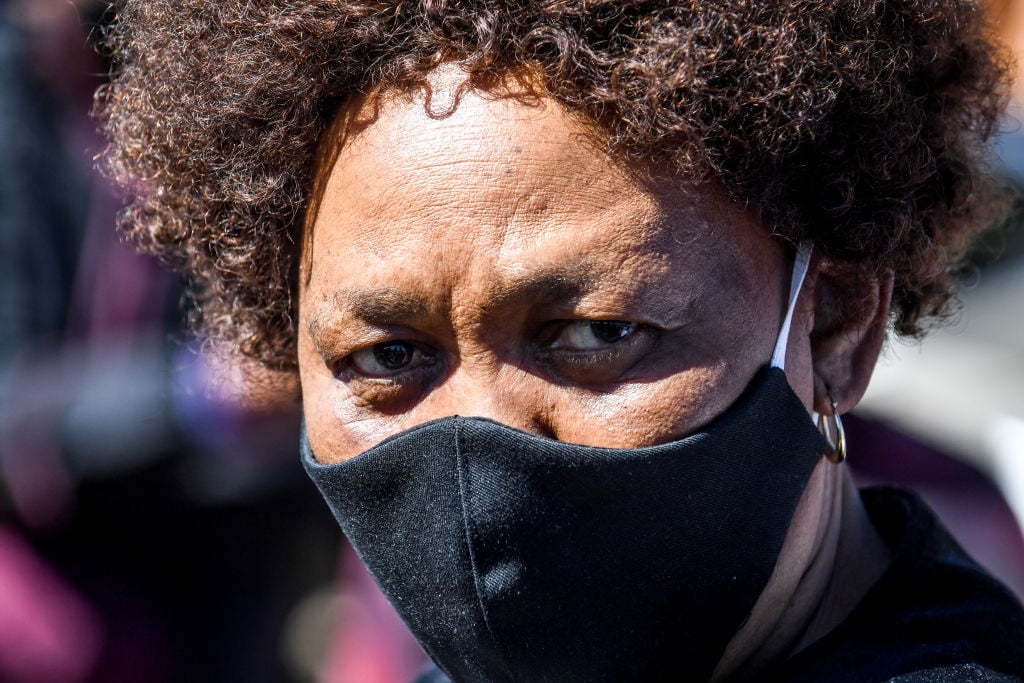


Minister of Basic Education Angie Motshekga.
Sydney Seshibedi/Gallo Images via Getty Images
- Basic Education Minister Angie Motshekga on Sunday confirmed Grade 6 and 11 pupils, and some Grade Rs, would be returning to school on Monday.
- She said provinces that were not prepared for Grade Rs had until the end of the month to accept pupils.
- Motshekga further stated the impact of school closures could not yet be assessed.
The schooling system will see a further opening up on Monday after Basic Education Minister Angie Motshekga confirmed the return of Grade 6 and 11 pupils. Only some Grade Rs, however, will be returning.
She said the Council of Education Ministers (CEM) convened last Thursday and considered a number of variables, including the rising community infections across the country, and the risk in dealing with the returning grades to school.
“This is what made CEM to consider staggering the returning grades, which were planned to return on [Monday] and 3 August. Firstly, CEM agreed that only Grades R, 6 and 11 will return to school tomorrow (Monday),” said Motshekga.
The minister said there would also be a reprieve for provinces not ready for little ones in Grade R.
“CEM also noted that provinces may be at different levels of readiness for the return of Grade R learners. Therefore, CEM agreed that those provinces that are not ready to receive Grade R on [Monday] must provide strategic and realisable plans for ensuring the reincorporation of Grade R learners to schools within, but not later than, the end of July.”
READ | Unions unhappy with the return of more grades to schools
She, however, urged provinces ready to receive Grade R pupils on Monday to go ahead.
“What is critically important is that all Grade R and pre-Grade R learners, who have already returned to schools, must remain in schools; and those schools that meet the health, safety and social distancing protocols can reopen for their Grade R and pre-Grade R learners.”
We are working on staggering returns
Motshekga said the department was working with national associations responsible for pupils with special needs to streamline their return to school.
“A further agreement by CEM is that all grades, that are part of the second cohort, should return to school in an orderly, staggered fashion within, but not later than, the end of July.”
The impact of disruptions
She further stated that less than 4% of schools had closed temporarily due to Covid-19 since the reopening on 8 June.
“[This] is much better than a system-wide closure over the same and even longer period of time. This would come at an unacceptable cost of lost learning and school feeding for an entire generation of children, with a consequent worsening of social and economic inequalities for years to come.”
ALSO READ | Independent school body asks president to return all grades to school
Motshekga said it was not yet possible to measure the impact of the current school closure “since no significant assessments of learner performance has been done”.
“However, the international and local evidence around the typical impact of losing school time, due to disasters, strikes, etc, suggests strongly that learning losses may well be greater than what is suggested by actual days lost. This is so in large part because disruptions result in learners forgetting some of what was previously learnt.”
The poorest children are suffering
She said that a forthcoming survey of households in SA by the Coronavirus Rapid Mobile Survey (CRAM) – which collects information on child care activities, child hunger and access to educational content, when children are being kept home from school – showed that child hunger was on the rise.
“Preliminary (unpublished) results, from the first wave of data collection, indicate an alarming increase in child hunger since the national lockdown began. The survey is also suggesting a significant increase in child care responsibilities, with an increased burden falling most heavily on women.”
She said the survey also confirmed that less than a third of children have accessed educational content through the internet.
“Larger proportions [are] accessing such content through books, television and radio. However, the effectiveness of these latter two activities is uncertain, and is likely to be far less intensive than attending school.”

